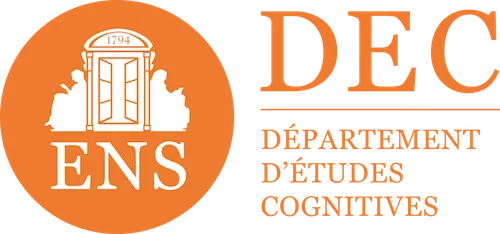

LMS Mobile Learning in Business: A Complete Guide
In a world where technology is evolving at lightning speed, mobile learning LMS is an essential solution for companies wishing to optimize the training of their employees. But what is it? How does it integrate into a platform LMS (Learning Management System) ?
Here is a complete overview of the mobile learning LMS, its educational benefits, and how Didask is implementing this innovative approach.
What is Mobile Learning LMS?
Mobile learning refers to any form of learning that takes place on mobile devices, such as smartphones and tablets. It allows users to access educational content anytime and anywhere, making learning more flexible and accessible.
The mobile learning Learning Management System is an online learning platform specially designed to allow users to access educational content and to follow vocational training via mobile devices, such as smartphones and tablets. This approach offers unparalleled flexibility, allowing learners to access educational resources at any time and in any place, whether while traveling by transport, during their breaks or at home.
It is essential to understand the Difference between an LMS and an LCMS. The Learning Management System focuses on managing and monitoring learning, while the LCMS (Learning Content Management System) focuses on creating and managing educational content. Although these two systems are complementary, they meet distinct needs in the context of corporate learning.
The rise of Mobile Learning in business
With the increase in the use of mobile devices at work, mobile learning LMS meets a growing demand from businesses for more dynamic and engaging training courses. This allows employees to acquire new skills outside of working hours, making continuing education more attractive.
Mobile Learning LMS Features
Mobile-learning LMS platforms incorporate several key features that facilitate and enrich the learning experience for users. Here are some of the essential features that a mobile-oriented LMS offers:
1. Optimized content for mobile
The contents are specifically adapted to the screens of smartphones and tablets, guaranteeing smooth navigation and pleasant reading. The videos, infographics, and texts are all designed for optimal viewing on mobile devices.
2. Offline accessibility
A major feature is the ability to download modules and resources for offline access. This allows users to continue learning even without an Internet connection, making learning even more flexible.
3. Notifications and alerts
Push notifications allow learners to receive reminders about course deadlines, new content, or upcoming events. This helps maintain engagement and encourages continued progression in the learning journey.
4. Interactive assessments and quizzes
Mobile-learning LMS incorporate assessment tools that allow users to test their knowledge in real time. Interactive quizzes, often gamified, reinforce learning and make assessment more engaging.
5. Monitoring and reporting
These platforms offer advanced analysis tools for monitoring learner performance. Training managers can access detailed reports on progress, assessment results, and time spent on each module, making it easy to identify training needs.
6. Integration with other tools
A good mobile-learning LMS integrates easily with other tools and systems, such as content management platforms or team communication tools. This allows for better coherence in learning and synergy between different systems.
7. Collaborative features
Platforms also allow for collaborative work through forums, discussion groups, and sharing tools. This promotes social learning and enriches the learning experience by allowing users to exchange ideas and knowledge.
The benefits of Mobile Learning LMS for businesses
Effectiveness of training
The use of mobile learning LMS in business reduces training costs by minimizing the need for travel and accommodation for face-to-face sessions. Employees can also take courses based on their availability, maximizing training time.
Adapting to new generations
The new generations of workers, who have grown up with digital technologies,
expect businesses to provide them with modern and interactive training solutions. A mobile LMS is therefore crucial for attracting and retaining talent.
A tool for knowledge management
It fits perfectly into a strategy of Knowledge Management. By facilitating the sharing and access to knowledge, it allows employees to capitalize on the experiences of their colleagues and learn from each other.
LMS in business: a winning strategy
Businesses that adopt an LMS often see significant improvements in employee performance. By integrating these solutions, they can meet a growing need for flexibility and accessibility in today's world of work.
Continuing education and adaptability
The LMS for training is an ideal solution to ensure that employees remain competitive in a constantly changing market. The ability to train staff on a continuous basis and adapted to changes in the sector is a major asset for any organization.
Innovations and technologies
The open source LMS offers unparalleled flexibility to customize functionalities according to specific business needs. Companies can thus integrate the latest innovations in training, such as innovative learning, and quickly adapt their programs based on feedback.
The educational benefits of the Mobile Learning LMS
Flexibility and accessibility
One of the main benefits of mobile learning LMS is the flexibility it offers. Employees can take courses at their own pace, which is especially beneficial in a work environment where time is often limited. In addition, it allows access to educational resources from any location, whether during a trip, during a lunch break or even at home.
Commitment and motivation
LMS platforms that incorporate mobile learning often use interactive elements like quizzes, videos, and simulations, promoting active learning. This not only increases learners' engagement but also their motivation to complete courses. The social learning features in LMS also encourage interaction between learners, strengthening knowledge sharing and team spirit.
Personalizing learning
With mobile learning, it is possible to personalize the learning journey according to individual needs. Users can choose which modules they are interested in and the platform can recommend content based on their progress and performance. This reinforces the effectiveness of the training by adapting it to the expectations of each employee.
What are the differences between Mobile Learning and eLearning?
While mobile learning and eLearning share similarities, there are key differences that set them apart. eLearning refers to any form of learning that takes place online, whether on a desktop computer, laptop, or mobile device. In contrast, mobile learning is specifically designed to be used on mobile devices, such as smartphones and tablets.
- Accessibility: mobile learning is capable of offering access to learning at any time and in any place. Learners can easily access educational content on the go, which is less common with traditional e-learning, which may require a stable Internet connection and a specific device.
- Interaction and engagement: Mobile learning often integrates interactive elements such as push notifications, educational games, and chat applications, which increases learner engagement. In contrast, e-learning can include videos, webinars, and forums, but it's often less dynamic in terms of real-time interaction.
- Design and format: Mobile learning content is often designed specifically for small screens and touch interactions, while e-learning may include longer, more detailed modules that are suitable for viewing on larger screens. This difference in design has a direct impact on the user experience, as mobile learning is often more accessible and user-friendly.
- Adaptability: mobile learning allows for even greater personalization thanks to the functionalities of mobile devices, such as geolocation and cameras. These elements can be integrated to create contextualized learning experiences, which is not always the case with traditional e-learning.
How does Didask integrate Mobile Learning into its LMS platform?
User friendly interface
The Didask LMS platform was designed to offer an optimal user experience. Its intuitive interface allows learners to easily navigate between the various modules, consult resources, and monitor their progress in real time.
Mobile-friendly content
Didask offers content adapted to smartphone and tablet screens. The videos, documents, and quizzes are all optimized for easy viewing and interaction, ensuring a seamless learning experience whether you're on the go or in the office.
Follow-up and analysis
Businesses can track the performance of their employees with built-in analytics tools. This makes it possible to identify strengths and areas for improvement, thus facilitating the adaptation of training programs.
Compatibility with other tools
Didask also offers integration options with other systems such as the Learning Content Management System (LCMS), which makes it possible to centralize the management of educational content. This integration is particularly useful for companies that use various tools for their training.
The mobile learning LMS is proving to be an essential tool for companies that want to optimize their training process. By making learning more accessible, engaging, and personalized, it meets the expectations of modern employees while ensuring increased efficiency for organizations. The Didask LMS platform is positioned as a key player in this field, offering solutions adapted to the current and future needs of businesses. By integrating innovative approaches and advanced technologies, it allows businesses to remain at the forefront of workplace learning.
Adopting a mobile learning LMS is no longer an option, but a necessity for any business that wants to evolve in today's dynamic world.
Make an appointment directly with our eLearning experts for a demo or simply more information.












